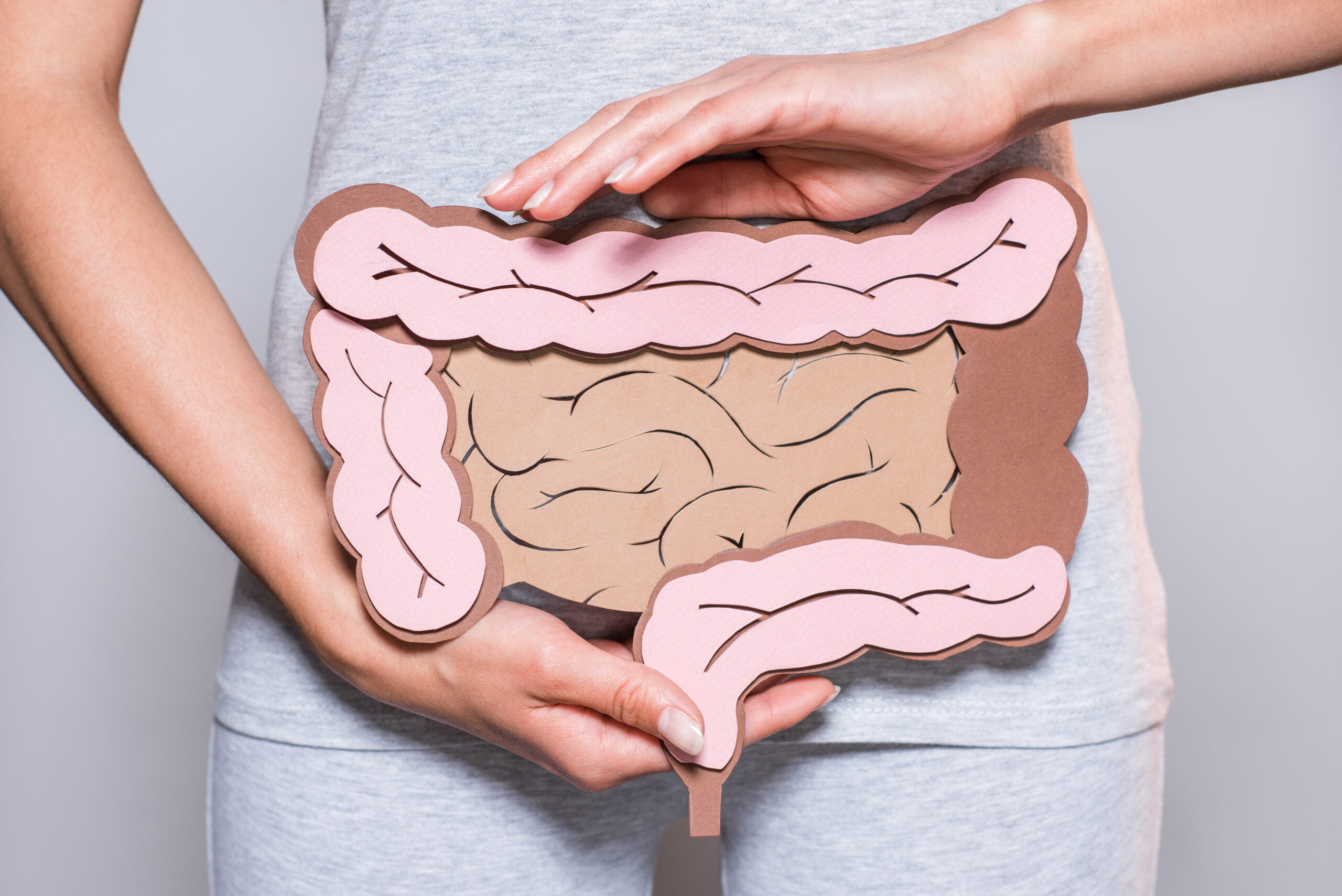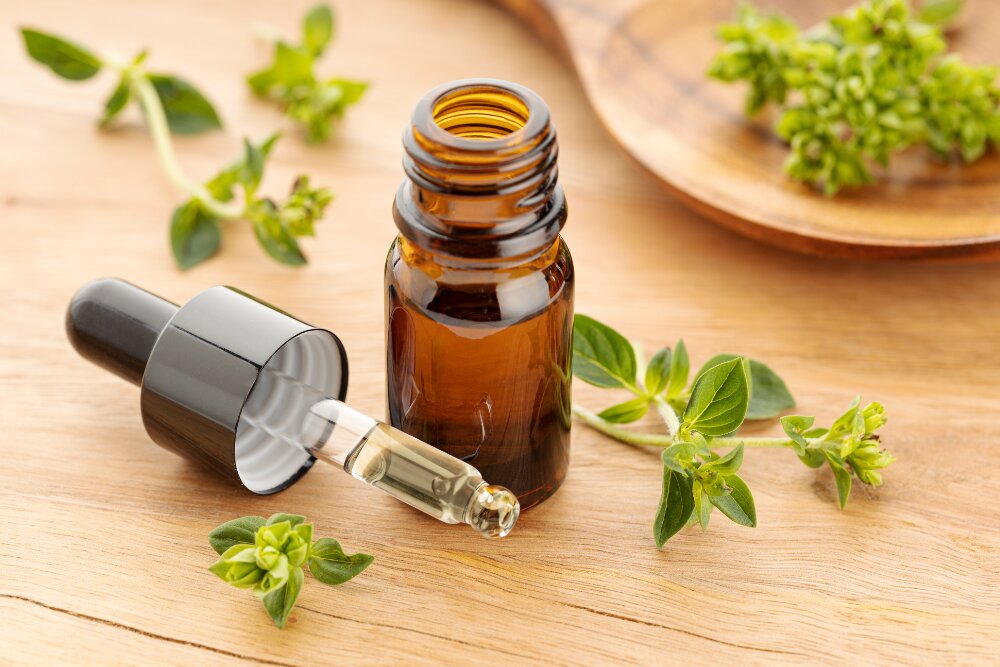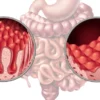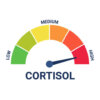
Leaky gut syndrome can be a controversial condition both is diagnosis and in treatment. However, there is clear research indicating that a leaky gut can contribute to a range fo digestive and systemic health issues.
This article will review and discuss the supplements that can help with this syndrome.
What is leaky gut syndrome?
Firstly, a syndrome is classified as a set of symptoms that commonly occur together. This is similar to IBS (irritable bowel syndrome) where symptoms of bloating, abdominal pain and altered bowel movements are present.
Importantly, this is in the absence of a test result that leads to the diagnosis of an organic disease.
With leaky gut syndrome, the common symptoms include:
· Digestive issues: bloating, diarrhoea, food sensitivities, abdominal pain
· Nutritional deficiencies: due to malabsorption
· Low energy
· Skin issues
· Alterations in mood: anxiety, depression, mood swings
Rather than the gut lining becoming leaky by itself, there needs to be an underlying mechanism that is triggering this increase in permeability.
While a comprehensive treatment may need to take into consideration these underlying factors, there are also certain supplements that have been found to support the healing of the gut lining and speed up the repair process.
How can supplements help with leaky gut?
Underlying factors that may lead to leaky gut include:
· Dysbiosis (imbalances in the gut bacteria)
· Reduced energy, and therefore a reduction in how quickly the gut heals and repairs
· Suboptimal intake of key amino acids, required for the healing process
Supplements that are considered for leaky gut will likely take one (or more) of these into consideration. These are focusing on:
· Supporting the balance of the gut microbiome
· Removing factors that are contributing to ongoing intestinal permeability
· Providing the nutrition required to support gut lining healing and regeneration
What are the best supplements for leaky gut syndrome?

While there are specific supplements that may be more helpful in certain situations, here are the most well-researched supplements for intestinal permeability and leaky gut syndrome.
Probiotics
Probiotics can support the gut in a variety of ways, however, research does indicate that this depends on the specific strain of probiotic bacteria.
Ways probiotics help with leaky gut include:
· Strengthening the gut lining – specific strains support tight junctions. These are the barriers between the cells which prevent toxins from leaking into the bloodstream.
· Reducing Inflammation – probiotics support an appropriate immune response and reduce gut inflammation.
· Microbiome Support – Dysbiosis (imbalance of gut bacteria) is a major contributor to leaky gut. Probiotics help restore the balance of the gut bacteria.
· Supporting Mucin Production – key strains support the appropriate production of mucus, which protects the intestinal lining.
Key strains of probiotics that support leaky gut include:
· Lactobacillus rhamnosus GG
· Lactobacillus reuteri
· Lactobacillus plantarum 299V
· Bifidobacterium breve · Saccharomyces boulardii [1]
Zinc
Zinc plays a key role in maintaining gut health. It supports the repair and regeneration of the intestinal lining.
Studies suggest that zinc carnosine can help:
· Strengthen the gut lining. This is particularly indicated to support the proper function of tight junctions in the gut lining, which help prevent the leakage of harmful substances between the gut cells.
· Anti-inflammatory: Zinc has anti-inflammatory properties that may help reduce inflammation in the gut, a common issue with leaky gut. [2]
Glutamine
Glutamine supports the gut in a number of ways to help with leaky gut.
· Supports Gut Lining Integrity – Glutamine is the primary fuel source for enterocytes, the cells that line the intestinal wall. When the gut is impacted or leaky, additional glutamine can help and encourage the repair process.
· Regulates Tight Junctions – Tight junctions are the connection points between cells which can become less stable in leaky gut. Glutamine can support the functioning of these tight junctions and improve the gut barrier.
· Reduces Inflammation – Inflammation is often present as part of leaky gut therefore the anti-inflammatory properties of glutamine are an important part of its benefits.
· Supports Immune Function – Inflammation and irritation along the gut lining may alter the immune response in the gut which contributes further to gut permeability. Glutamine can support an appropriate balance of immune cells in the gut to further support gut healing. [3]
Collagen
Collagen is a natural supplement to help the gut lining. These are the ways it can help:
· Supports the Gut Lining – collagen is rich in amino acids like glycine, proline, and hydroxyproline, which are essential for maintaining and repairing the intestinal lining.
· Improves Tight Junctions – as with glutamine, collagen supports the tight junctions between the gut cells.
· Reduces Inflammation – collagen also contains anti-inflammatory compounds that can help soothe and reduce inflammation in the gut. By decreasing gut inflammation, collagen helps to restore the gut lining and reduce intestinal permeability. [4]
Berberine
Berberine is a plant extract that has many gut benefits, including helping treat leaky gut.
· Reduces Inflammation – berberine has strong anti-inflammatory property which supports gut healing. By inhibiting pro-inflammatory cytokines, berberine helps calm the inflammatory response in the gut, which can improve intestinal permeability.
· Supports Gut Barrier Function – berberine has also been found to support the expression of tight junction proteins, supporting the gut lining repair process.
· Balances Gut Microbiota – due to its anti-microbial properties it can support the balance of the gut microbiome. This supports the growth of beneficial organisms and reduces potentially harmful ones like Clostridia.
· Increasing SCFA-producing bacteria – berberine can increase the number of bacteria that produce short-chain fatty acids (SCFAs) in the gut, which act as a key energy source for cell repair in the gut. [5]
Alternative treatment options

There are a range of other treatments and supportive strategies to help with leaky gut. These include:
Dietary Changes
· Elimination diet: removing processed foods, gluten, dairy, refined sugar, and artificial additives that may contribute to gut inflammation. It may also be that certain foods may trigger an immune response, thus leading to gut damage. These can vary but may include healthy foods such as eggs, soy and corn.
· Increase fibre: ensure a good level of prebiotic-rich foods (onions, garlic, leeks, asparagus) in the diet to support beneficial gut bacteria. It’s also possible to include prebiotics in the diet, such as PHGG and GOS.
· Bone broth: Rich in collagen and amino acids like glutamine, which help heal the gut lining.
· Fermented foods: these include sauerkraut, kimchi, kefir, and yoghurt help balance gut bacteria, help reduce inflammation as well as contain bacterial by-products that support the gut lining.
Lifestyle Changes
· Reduce stress: since chronic stress weakens the gut barrier meditation, deep breathing, or yoga can all be considered gut as gut support.
· Improve sleep: Poor sleep negatively impacts gut health so working on optimising sleep is helpful for gut health.
· Avoid excessive alcohol & NSAIDs: These can damage the gut lining over time therefore using these appropriately is important for both long-term and short-term gut health.
When to consult a medical professional
A medical professional can be consulted at any point. This can be an important way to reduce the guesswork often associated with self-treating.
Gut health specialists can help design personalised treatment plans and guide the support process. This includes dose and duration of supplements, appropriate dietary changes and considerations around which tests may be the most appropriate in a given situation.
Conclusion
While understanding the underlying cause of symptoms can be an important approach to a successful treatment, many of the strategies explained here can be helpful for a range of issues within the gut. Therefore, they can take other possible causes into consideration alongside leaky gut.
If you are unsure about the best approach to take for your gut health contact us for a free 15-minute appointment to asses your gut health.
References
Hazel K, O’Connor A. Emerging treatments for inflammatory bowel disease. Ther Adv Chronic Dis. 2020 Feb 5;11:2040622319899297. doi: 10.1177/2040622319899297. PMID: 32076497; PMCID: PMC7003169.
Peng X, Yang Y, Zhong R, Yang Y, Yan F, Liang N, Yuan S. Zinc and Inflammatory Bowel Disease: From Clinical Study to Animal Experiment. Biol Trace Elem Res. 2025 Feb;203(2):624-634. doi: 10.1007/s12011-024-04193-6. Epub 2024 May 28. PMID: 38805169.
Zhou Q, Verne ML, Fields JZ, Lefante JJ, Basra S, Salameh H, Verne GN. Randomised placebo-controlled trial of dietary glutamine supplements for postinfectious irritable bowel syndrome. Gut. 2019 Jun;68(6):996-1002. doi: 10.1136/gutjnl-2017-315136. Epub 2018 Aug 14. PMID: 30108163; PMCID: PMC9549483.
Chen Q, Chen O, Martins IM, Hou H, Zhao X, Blumberg JB, Li B. Collagen peptides ameliorate intestinal epithelial barrier dysfunction in immunostimulatory Caco-2 cell monolayers via enhancing tight junctions. Food Funct. 2017 Mar 22;8(3):1144-1151. doi: 10.1039/c6fo01347c. PMID: 28174772.
Gu L, Li N, Gong J, Li Q, Zhu W, Li J. Berberine ameliorates intestinal epithelial tight-junction damage and down-regulates myosin light chain kinase pathways in a mouse model of endotoxinemia. J Infect Dis. 2011 Jun 1;203(11):1602-12. doi: 10.1093/infdis/jir147. PMID: 21592990.
History
Uploaded by Martin Cohen 27/03/2025






